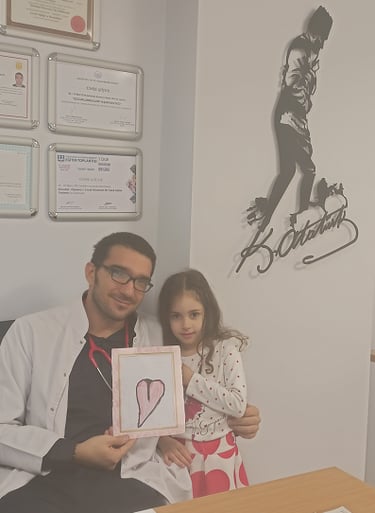Healthy Child
A healthy child visit, also known as a well-child checkup or routine pediatric checkup, is a regular appointment with a healthcare provider to monitor the growth, development, and overall health of a child who does not have any specific health concerns. These visits are typically scheduled at regular intervals, such as every few months or once a year, depending on the child's age and the healthcare provider's recommendations.


During a healthy child visit, the healthcare provider will perform a variety of assessments and screenings to ensure that the child is growing and developing properly. Some common components of a well-child visit may include:
Physical examination: The healthcare provider will assess the child's general appearance, growth, and vital signs such as heart rate, blood pressure, and temperature. They will also examine various body systems, including the heart, lungs, abdomen, and skin.
Developmental assessment: The healthcare provider will evaluate the child's physical, cognitive, social, and emotional development. They may ask questions about the child's milestones, language skills, motor skills, and behavior to ensure they are meeting appropriate developmental milestones for their age.
Immunizations: The healthcare provider will review the child's immunization record and administer any necessary vaccines to protect against infectious diseases. Immunizations are a crucial part of well-child visits to prevent serious illnesses.
Health screenings: The healthcare provider may conduct various screenings based on the child's age and risk factors. This may include vision and hearing tests, blood tests, lead screening, or developmental and behavioral screenings.
Nutrition and lifestyle counseling: The healthcare provider may provide guidance on nutrition, healthy eating habits, physical activity, sleep, and safety measures specific to the child's age and development.
Health education and anticipatory guidance: The healthcare provider will discuss topics related to the child's overall well-being, such as injury prevention, oral health, mental health, and age-appropriate health education.
Addressing parental concerns: Parents are encouraged to discuss any concerns or questions they may have about their child's health, behavior, or development during the visit.
The specific components of a well-child visit may vary depending on the child's age and individual needs. These visits play a crucial role in preventive care, early detection of health issues, and promoting the overall well-being of children. It is important for parents to follow the recommended schedule of well-child visits and maintain open communication with their child's healthcare provider.
